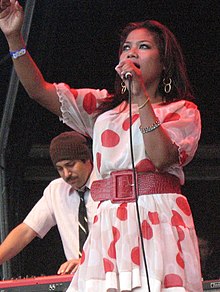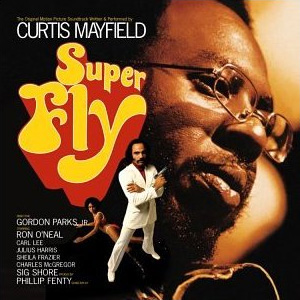
Super Fly is the third studio album by American soul musician Curtis Mayfield, released on July 11, 1972 on Curtom Records. It was released as the soundtrack for the Blaxploitation film of the same name. Widely considered a classic of 1970s soul and funk music, Super Fly was a nearly immediate hit. Its sales were bolstered by two million-selling singles, "Freddie's Dead" and the title track. Super Fly is one of the few soundtracks to out-gross the film it accompanied.

The music of Cambodia is derived from a mesh of cultural traditions dating back to the ancient Khmer Empire, India, China and the original indigenous tribes living in the area before the arrival of Indian and Chinese travelers. With the rapid Westernization of popular music, Cambodian music has incorporated elements from music around the world through globalization.
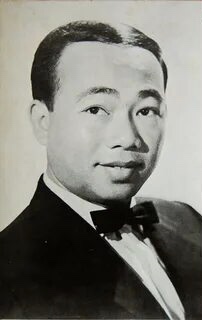
Sinn Sisamouth was a Cambodian singer-songwriter active from the 1950s to the 1970s. Widely considered the "King of Khmer Music", Sisamouth, along with Ros Serey Sothea, Pen Ran, Mao Sareth, and other Cambodian artists, was part of a thriving pop music scene in Phnom Penh that blended elements of Khmer traditional music with the sounds of rhythm and blues and rock and roll to develop a Cambodian rock sound. Sisamouth died during the Khmer Rouge regime under circumstances that are unclear.

Ros Serey Sothea was a Cambodian singer. She was active during the final years of the First Kingdom of Cambodia and into the Khmer Republic period. She sang in a variety of genres; romantic ballads emerged as her most popular works. Despite a relatively brief career she is credited with singing hundreds of songs. She also ventured into acting, starring in a few films. Details of her life are relatively scarce. She disappeared during the Khmer Rouge regime of the late 1970s but the circumstances of her fate remain a mystery. Norodom Sihanouk granted Sothea the honorary title "Queen with the Golden Voice."

Dieselhed was a San Francisco–based band, originally from Arcata, California.
The Budos Band is an American instrumental band from Staten Island, New York, formed in 2005. AllMusic describes the group as a "doom rock Afro-soul big band with a '70s touch" that joins "musical universes from trippy psychedelia and Afro-funk to '70s hard rock and late-'60s soul." They have described themselves as "70's Psychedelic Instrumental Music," and "Afro-soul inspired by Ethiopian music with a soul undercurrent" and "sprinkled a little bit of sweet 60's stuff on top." One reviewer described the band as “sounding as if Quentin Tarantino was the music supervisor for a Bond film". Their more recent albums have incorporated sounds from 1970s jazz, funk, Afro-Beat, underground rock, and proto-metal. They have been signed to Daptone Records throughout their career.
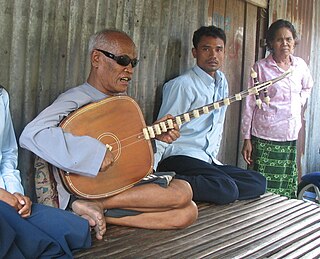
Kong Nay, also known as Kong Nai, was a Cambodian musician from Kampot Province in southwestern Cambodia who played a traditional long-necked fretted plucked lute called chapei dang veng.

Kamtin Mohager is an American singer, songwriter, musician, record producer, and graphic designer born in San Jose, California. Raised in Hawaii, and later Colorado, Mohager began pursuing punk rock music in his teenage years. Later inspired by shoegaze and alternative rock bands from the 1990s, he formed the indie electronic project The Chain Gang of 1974. He has released five studio albums, White Guts (2010), Wayward Fire (2011), Daydream Forever (2014), Felt (2017), and Honey Moon Drips (2020). His 2014 single "Sleepwalking" gained popularity for featuring on the video game Grand Theft Auto V (2013) and its accompanying soundtrack.
Christopher Minko is an Australian musician and co-founder of the Phnom Penh-based Delta blues group called Krom. Living in Cambodia since 1996, Minko is also the founder and Secretary General of the Cambodian National Volleyball League (Disabled) NGO, also known as CNVLD.
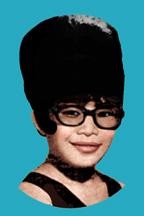
Mao Sareth was a Cambodian singer active from the early 1960s to the mid-1970s. Sareth was born in 1944 in Battambang, with the birth name Pol Sarann. She was one of the earliest popular singers in the Cambodian rock scene of the early 1960s, in which musicians combined traditional Khmer music styles with popular forms from the United States, Europe, and Latin America. Mao was cited as an influence by later singers Pen Ran and Ros Serey Sothea. She is known to have performed live as late as 1973.
Aok Sokunkanha, simply known as Kanha, is a Cambodian singer, actress and brand ambassador. She is known for being a judge in the reality shows The Voice Cambodia, Cambodian Idol, The Voice Kids Cambodia and The X Factor Cambodia.
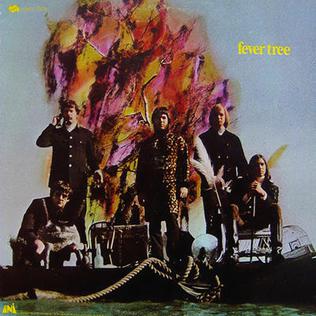
Fever Tree is the debut studio album by the American psychedelic rock band Fever Tree and was released on March 28, 1968 on Uni Records. It blended multiple influences ranging from psychedelia to baroque pop and folk rock, and was marked by eerie ballads and hard rock numbers. Much of the group's material was penned by the husband-wife songwriting duo of Scott and Vivian Holtzman, along with renditions of contemporary rock songs. The album was preceded by arguably Fever Tree's best known song, "San Francisco Girls ", becoming the group's only nationally charting single. Like its attendant single, Fever Tree was also moderately successful and managed to reach number 156 on the Billboard 200.
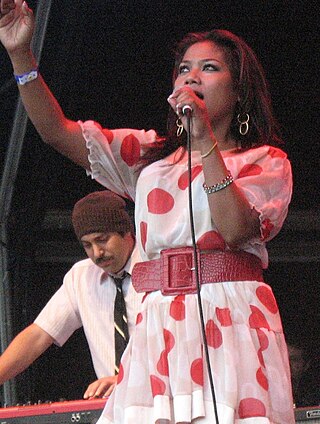
Chhom Nimol is a Cambodian-American singer and lead vocalist for the band Dengue Fever, which she joined in 2001.
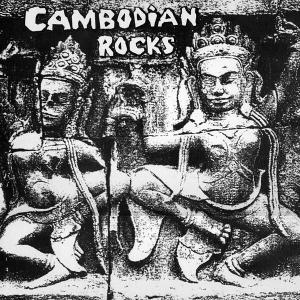
Cambodian Rocks is a compilation of 22 uncredited, untitled Cambodian psychedelic and garage rock songs from the late 1960s and early 1970s. When the tracks were recorded, musicians in the thriving music scene were combining Western rock and pop genres with their own styles and techniques. When the Khmer Rouge came to power in 1975, artists were among those viewed as a threat to the regime's agrarian socialist vision, and several of the performers on the album are believed to have been among those killed during the ensuing Cambodian genocide of 1975–1979. A great deal of information about them and their creative output was lost, although some has been recovered since the album's release.
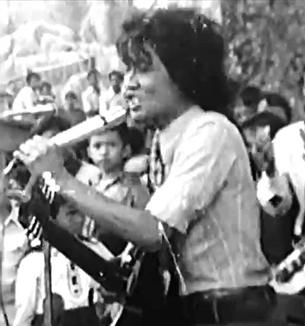
Yol Aularong was a Cambodian garage rock musician, and a leading figure in the country's rock scene of the 1960s and 70s. He incorporated elements of soul, funk, and rock into his music, and was known for his rebellious persona, humor, and social commentary. He is presumed to have been killed during the Cambodian genocide that took place under the Khmer Rouge between 1975 and 1979. Aularong received renewed attention with posthumous collections like Cambodian Rocks, the documentary Don't Think I've Forgotten, and the off-Broadway production Cambodian Rock Band.

Zac Holtzman is an American guitarist and co-founder of the band Dengue Fever. He also played Dr. San in the web series On Cinema, At The Cinema.
Kak Channthy was a Cambodian singer and vocalist of the band Cambodian Space Project. She has been described as "the barefoot diva of the Cambodian rice fields".
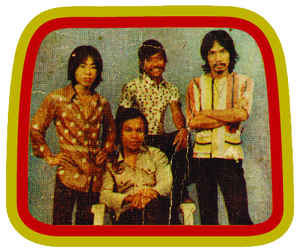
Drakkar was a Cambodian hard rock band active in the late 1960s and early 1970s. Their music has been noted as an important late-stage development in Cambodian rock of the 1960s and 70s, a thriving music scene that was abruptly crushed by the Khmer Rouge communists in 1975. Some members of the band did not survive the ensuing Cambodian genocide. Surviving members resurrected the band and began performing again in 2011.
Cambodian rock of the 1960s and 1970s was a thriving and prolific music scene based in Phnom Penh, Cambodia, in which musicians created a unique sound by combining traditional Cambodian music forms with rock and pop influences from records imported into the country from Latin America, Europe, and the United States. U.S. armed forces radio that had been broadcast to troops stationed nearby during the Vietnam War was also a primary influence. This music scene was abruptly crushed by the Khmer Rouge communists in 1975, and many of its musicians disappeared or were executed during the ensuing Cambodian genocide. Due to its unique sounds and the tragic fate of many of its performers, the Cambodian rock scene has attracted the interest of music historians and record collectors, and the genre gained new popularity upon the international release of numerous compilation albums starting in the late 1990s.


